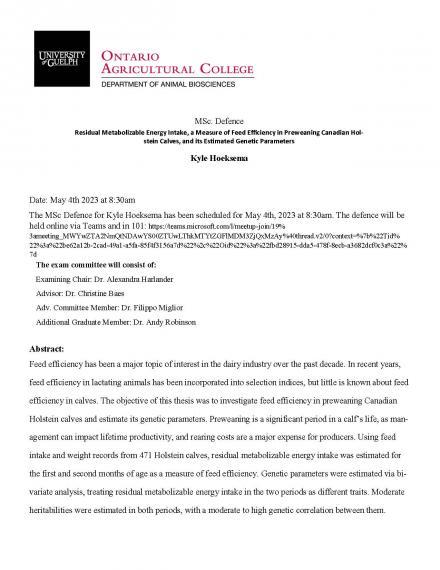MSc Defence Notice for Kyle Hoeksema
Date and Time
Location
Room 101 and Teams: https://teams.microsoft.com/l/meetup-join/19%3ameeting_MWYwZTA2NmQtNDAwYS00ZTUwLThkMTYtZGFlMDM3ZjQxMzAy%40thread.v2/0?context=%7b%22Tid%22%3a%22be62a12b-2cad-49a1-a5fa-85f4f3156a7d%22%2c%22Oid%22%3a%22fbd28915-dda5-478f-8ecb-a3682dcf0c3a%22%7d

Details
Feed efficiency has been a major topic of interest in the dairy industry over the past decade. In recent years, feed efficiency in lactating animals has been incorporated into selection indices, but little is known about feed efficiency in calves. The objective of this thesis was to investigate feed efficiency in preweaning Canadian Holstein calves and estimate its genetic parameters. Preweaning is a significant period in a calf’s life, as man-agement can impact lifetime productivity, and rearing costs are a major expense for producers. Using feed intake and weight records from 471 Holstein calves, residual metabolizable energy intake was estimated for the first and second months of age as a measure of feed efficiency. Genetic parameters were estimated via bi-variate analysis, treating residual metabolizable energy intake in the two periods as different traits. Moderate heritabilities were estimated in both periods, with a moderate to high genetic correlation between them.